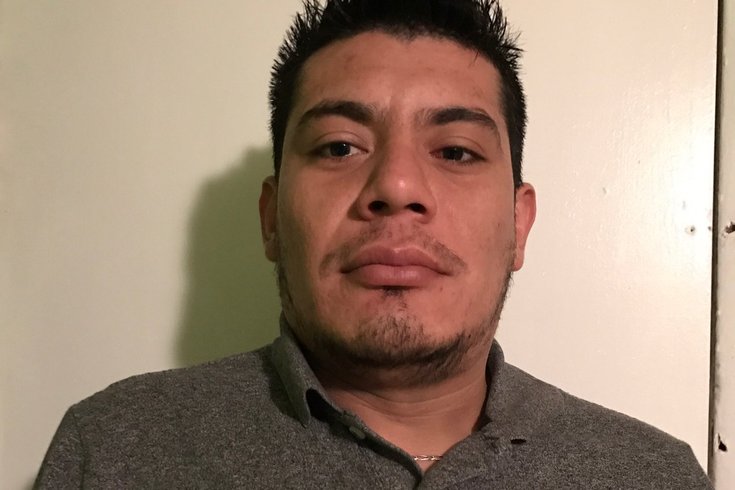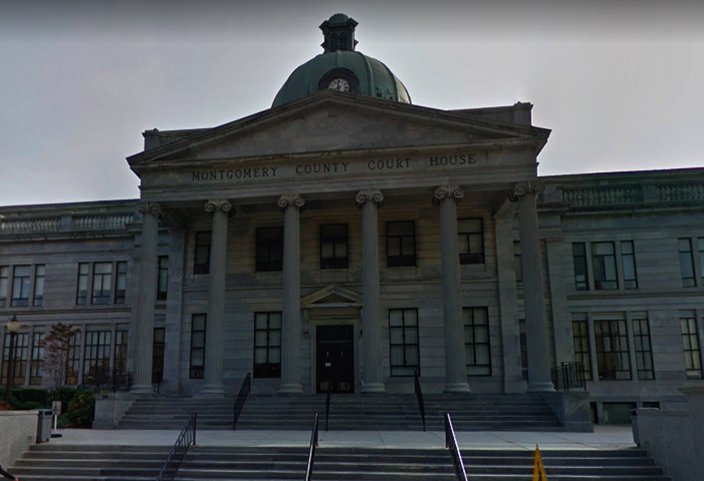
March 15, 2018
 Photo courtesy/Gabrielle Ponce
Photo courtesy/Gabrielle Ponce
Arturo Juarez, 26, was arrested on DUI charges in December 2017. ICE agents took him into custody outside a Norristown court building. He has since been deported to Mexico. "Everyone else (in Norristown) treated me well," he told PhillyVoice from Mexico, "but I feel like I was discriminated against because I am Mexican. It's not fair."
Depending on who you believe, Arturo Juarez was already out of his car – or passed out in it – when police in Norristown, Montgomery County, arrested him on DUI charges in the wee hours of December 20, 2017.
The differing versions of events matter little to this reality: he's already been deported to Puebla, Mexico.
The case highlights the fear of a chilling effect on all sides of the legal system in this suburban Philadelphia county.
For Juarez and his family, the worries are much more tangible. They've been left to wonder whether they'll ever see again one another – or the $9,000 cash bail his loved ones scrambled to post.
The stories of deportations by Immigration and Customs Enforcement are as plentiful nationally as they are divisive – on local, national and even administrative levels.
One thing makes Juarez's case stand out: witnesses and relatives say he was scooped up by Immigration and Customs Enforcement agents hiding in plain sight while at court to face criminal charges.
Inside the district court building on Dekalb Street in Norristown, Juarez was surrounded by family members in the room. He would walk outside during a break and never make it back inside, according to witnesses.
"He was supposed to have court that day, but ICE was waiting at the door," his girlfriend Gabrielle Ponce told PhillyVoice. "He told me they didn't even let him go in. Why do we pay that money to (bail him out) if they're just going to take it all? That's a lot of money."
More urgent to the eyes of defense attorneys, eyewitnesses and others who do business at the courts is the allegation that Juarez – who was flown back to Mexico from Pennsylvania – was not alone.
They say that ICE agents have apprehended at least a half dozen people between the Dekalb Street location and the main courthouse at Swede and East Airy streets in recent months, a claim that the immigration agency did not specifically confirm beyond saying it has, in fact, detained people there.
"If you're a witness or a victim, you now have the ability to get deported when you walk outside of the building. What happens to them?"
Some estimates run higher amid concerns of a chilling effect taking hold as both victims and witnesses fear heading to court to testify in cases, not knowing whether ICE will be there to pick them up as well.
Some officials have said they've considered using police or constable escorts to stave this off despite lingering jurisdictional concerns. On the day that ICE agents detained Juarez, that manifested itself as people being scared to leave the courtroom, according to someone who was there that day.
That was worrisome to a source with a legal background.
"It sends a stark contrast. If you're a witness or a victim, you now have the ability to get deported when you walk outside of the building," said the source, who requested anonymity. "What happens to them? What if there's a surge that goes out telling people not to show up for court? These are real-world issues. It's not a political thing."
At least one Mexican national who was picked up by ICE has retained a private attorney and is fighting the deportation order that resulted from a vehicle stop.
While abiding by the letter of the law, the accusations raise an important question.
Will the wheels of justice slow down in Montgomery County when defendants of questionable immigration status – or, worse yet, victims of or witnesses to crimes in the county – stop showing up for hearings out of fear?
And, do these suspicions destroy any credibility of claims that the court house exists in a suburban sanctuary county?
Sources say ICE agents have apprehended at least a half dozen people at the main courthouse at Swede and East Airy streets, above, and the district court building on Dekalb Street location and in recent months. Some estimates run higher amid concerns of a chilling effect taking hold as both victims and witnesses fear heading to court to testify in cases because ICE may try to take them into custody.
The witness with a legal background is well-versed in how the immigration issue has impacted the suburban county.
"Montgomery County is listed as a sanctuary county, but it is not functioning as one," the source said, alluding to the April 2014 correctional-facility policy that maintained it would not hold people on an ICE detainer. "Five defendants have been taken away by ICE. I saw one, and I know of another one in the (county's main) courthouse itself.
"The ICE agents are careful about how they're dressed. They seem inconspicuous when they're here."
"Another was at (the Dekalb Street district court building), and the judge was really pissed off about it. I think there's more than five, but I'm only aware of five. The ICE agents are careful about how they're dressed. They seem inconspicuous when they're here."
Another Montgomery County legal observer, who also asked to speak anonymously, puts the number at double digits when you factor in victims and witnesses who may have been snatched up after testifying in hearings against defendants.
Arturo Juarez was arrested on December 20, 2017 on driving under the influence and related charges in Norristown.
"He was operating a car and struck a parked vehicle," said Norristown police Capt. Todd Dillon of the incident on the 1300 block of Aster Street. The arresting officer "found him passed out in the car around 1 a.m."
(Ponce, his girlfriend, maintained that he was already outside of the car and a neighbor called police on him.)
Dillon noted that the suspect was driving a Ford Mustang and allegedly hit a parked Cadillac. Juarez's insurance, Dillon said, was suspended and he didn't have a driver's license.
In a similar case, Juan Manuel Chavez Lopez was arrested on Egypt Road near Route 422 at 10:42 p.m. on January 17 and charged with providing false identification, driving without a license and assorted charges.
According to Lt. Mark Freeman of the Upper Providence Police Department, he was stopped for a moving violation.
"The driver gave a fake name and we ultimately discovered who he was," Freeman said. "The case is still pending and a preliminary hearing was scheduled but continued (when he hired) a defense attorney."
Lopez is being held at the York County Correctional Facility, where people detained by ICE are commonly taken before possible deportation.
"We would not interfere with local agencies enforcing the law." – Montgomery County Sheriff Sean P. Kilkenny
Calls to Montgomery County officials inquiring about ICE's access to county buildings didn't reveal too many answers.
Kate Delano, communications director for the Montgomery County District Attorney's Office, deferred to the county sheriff's office.
"It would not be up to the DA's Office to establish rules for interdiction within the courthouse," she said.
Teresa W. Harris, communications and public relations coordinator for Sheriff Sean P. Kilkenny, shared the sheriff's response to PhillyVoice's inquiries about the allegations.
"Sanctuary cities is a term that is being used without a clear definition," Kilkenny said. "Montgomery County does not operate a police force, so our approach to handling individuals with Immigration and Customs Enforcement detainers is governed by the relevant state and federal case law.
"Though the arrests are taking place in the courthouse, our role is to secure the Justice Complex, which includes the courthouse. We would not interfere with local agencies enforcing the law."
With prosecutor's and the sheriff's offices deferring to ICE, Adrian Smith, public affairs officer at the agency's Philadelphia office (which oversees operations in Pennsylvania, Delaware and West Virginia), provided answers attributable to ICE officials.
Lopez-Chavez, a 25-year-old "Mexican citizen unlawfully present in the United States," was arrested by ICE agents on January 18 at the Montgomery County Correctional Facility in Eagleville, the agency said.
ICE acknowledged that it arrests targets at courthouses, but that "it's only after investigating officers have exhausted other options."
One week later, agents arrested Juarez, a 26-year-old who is also a "Mexican citizen unlawfully present in the United States." Per ICE, the arrest occurred "near the courthouse." He was deported shortly thereafter.
ICE acknowledged that it "does arrest targets at courthouses" with the caveat that "it's only after investigating officers have exhausted other options."
According to ICE, many of the arrest targets it has sought out at or near courthouses are foreign nationals who have prior criminal convictions, pending charges and/or threats to public safety in the United States. In years past, most of these individuals would have been turned over to the agency by local authorities upon their release from jail based on ICE detainers.
When criminal custody transfers occur inside the secure confines of a jail or prison, it's far safer for everyone involved, including its own officers and the person being arrested, ICE said.
Now that many law enforcement agencies no longer honor its detainers, ICE said these individuals, who often have significant criminal histories, are released onto the street, presenting a potential public safety threat.
In such instances where deportation officers seek to conduct an arrest at a courthouse, every effort is made to take the person into custody in a secure area, out of public view, but it's not always possible, ICE said.
A source on the defense side of the Norristown aisle said officials on all sides of the system are sympathetic to the issue.
The source, who talked on the condition that he wasn't identified, noted that most police departments won't enforce ICE detainers, while the county jail tends to do so for four hours with an understanding of "come and get him or we'll release him."
He also said the arrests – with "at least three that I know of" occurring in the vestibule outside the main courthouse or at district court – are likely caught on film.
Lopez-Chavez's case is listed as "closed," according to court records that list no upcoming hearings.
Juarez had a formal arraignment scheduled for Wednesday morning, but Montgomery County Court records now list his case as "inactive."
Records indicate his bail was lowered from $10,000 to $9,000 the day after his arrest, but that it had been forfeited after a bench warrant – which remains active – was issued February 20. It's the only criminal case filed against Juarez, according to records.
"He's sad, you know?" said Ponce, Juarez's girlfriend. "His brother Lorenzo is talking to a lawyer about what's going on with the money. Arturo didn't get a chance to say anything or go to court about the charges. They just took him."
That these stories are coming out of Norristown doesn't come as a major surprise to anybody who's seen the city's demographics diversify in recent years.
Five years ago, ICE's relationship with local authorities made headlines as the city's Hispanic population topped 30 percent.
Back then, there were concerns about the potentially illegal cooperation between ICE and Norristown police leading to violations of immigrants' rights and excessive deportations.
In the years since, a new police chief is leading the department, but concerns linger in the immigrant community.
Immigration attorney Brennan Gian-Grasso: “Sometimes, judges can be reasonable .... But in other cases, there's almost no due process.”
Still, there were concerns in the community but his successor, Mark Talbot, has improved the situation, according to an immigration attorney who handles cases in that jurisdiction.
"Things are markedly better with Norristown police," said Brennan Gian-Grasso, of the Gian-Grasso, Tomczak, & Hufe firm in Old City, this week. "It's one of few places that you can say it has, but it's been a total 180 in a lot of ways. They are much more responsive with victims.
"Talbot has said 'It's my job to protect people who live in Norristown; I don't care who you are or what your immigration status is.' Under Bono, he was inviting cooperation with ICE. He would say we cooperate (with ICE) just like how we cooperate with any law enforcement agency."
Despite those improvements, Gian-Grasso said, there is still an overarching fear in Latino communities both here and across the commonwealth and country.
The attorney spoke of a higher level of "aggressive enforcement at courthouses" with ICE's mandate from Washington, D.C. That leads people to be wary of reporting crimes or speaking with law enforcement, fearing the interactions could lead to deportation, he added.
"I miss my job and I miss my family." – Arturo Juarez
"We always had problems with the Obama administration, but now, they're just picking people up," he said, noting that vehicular charges often lead to the situations faced by Juarez and Lopez. Those cases "don't surprise me at all, especially with the DUIs since they look really bad publicity-wise. A lot of my clients fall into that category. Particularly in the suburbs, how else are you getting around?
"On one hand, one DUI arrest, you made a mistake, like many people have. But they can't even get ARD (Accelerated Rehabilitative Disposition), and risk being separated from their family forever."
Such defendants get "doubly screwed" with bench warrants issued on them when they're in ICE detention, he said, thus risking their bail money as was the case with Juarez.
"Sometimes, judges can be reasonable with that," Gian-Grasso said. "But in other cases, there's almost no due process."
That is the predicament facing Juarez and his family.
The officials who shielded their identities in discussing these cases hope it will prompt a public conversation about what's been happening quietly in Norristown. Anonymity, they said, helps them protect friendly-ish relationships necessary to work out these issues with different agencies.
On Tuesday, Juarez called PhillyVoice from Puebla, Mexico where his job is planting green beans. He said that, despite the arrest, he felt unnecessarily targeted by the police and ICE in its aftermath.
"Everyone else (in Norristown) treated me well, but I feel like I was discriminated against because I am Mexican," he said. "It's not fair. I try to do the right things and I never thought they wouldn't even let me see a judge. I paid $10,000 to be able to do that."
It remains unclear whether he will be able to recoup that bail money, which resulted from a bench warrant that was out of his control to avoid.
What he would like to do is have the chance to actually appear before a Norristown judge on the charges.
"I hope to return someday to try and work a lot more to be able to save as much as I can," he said. "I miss my job and I miss my family."
 Google/StreetView
Google/StreetView Source/www.gthpc.com
Source/www.gthpc.com